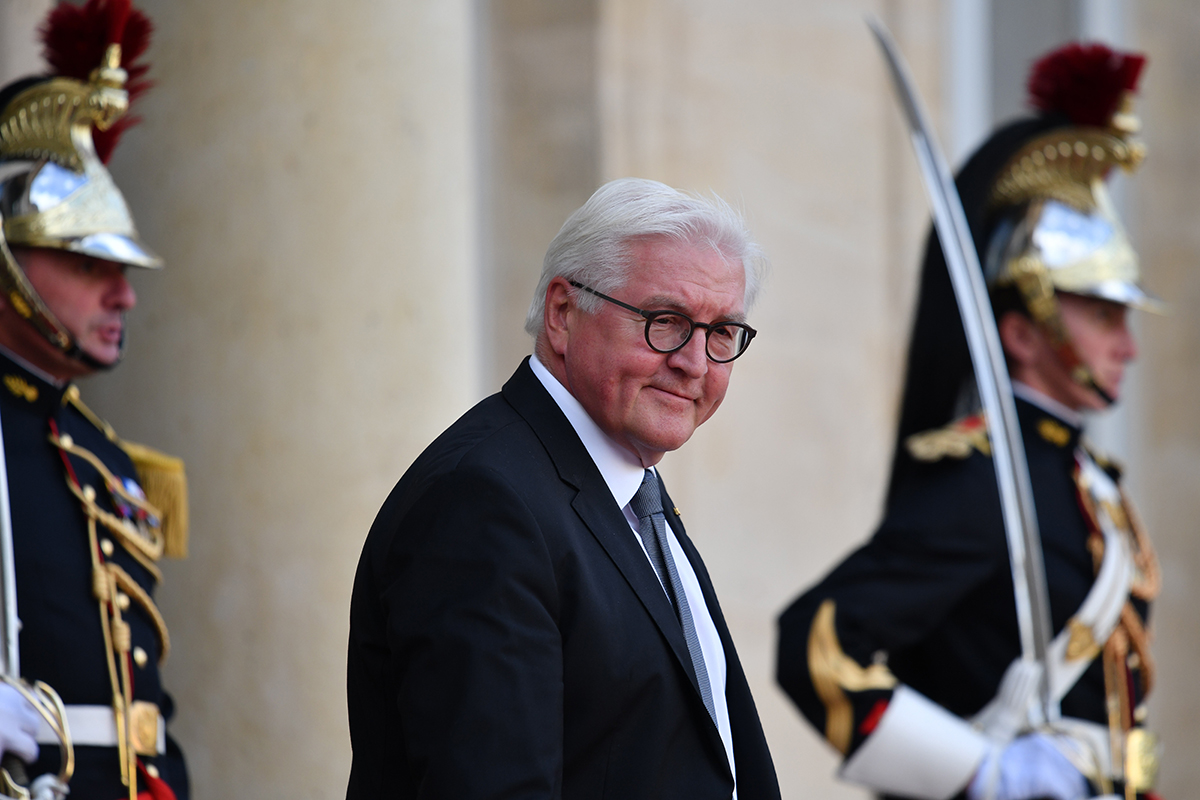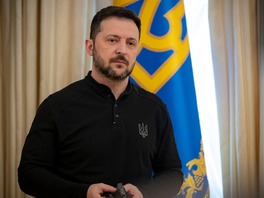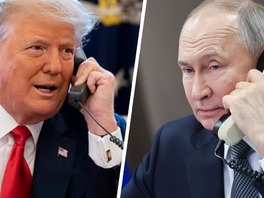The Steinmeier formula is not a mechanism for ending the war in eastern Ukraine. However, it is not a surrender to the Kremlin either. The formula has raised many questions. In an interview with Apostrophe, an expert of the Stiftung Wissenschaft und Politik Foundation at the German Institute for International and Security Affairs and Doctor of Political Science at the University of Mannheim Susan Stewart expressed her opinion on the account.
- How can we assess the recent progress in conflict resolution in Donbas? In particular, including the signing of the so-called Steinmeier formula.
- Nothing has been clarified since the Steinmeier formula was signed. It determines that the special status is granted to the occupied territories for the duration of elections. The status becomes permanent if the OSCE declares elections transparent and fair. Nevertheless, there are no answers to other questions. In particular, it is not clear how elections can be organized, under what conditions they can be held, who decides what the conditions would be, or what would be a special status. All these issues stand in the way of progress and must be resolved.
- What is the general perception of the Steinmeier formula in Europe?
- The Steinmeier formula agreement is seen as another step towards a possible settlement of the conflict with Russia since Zelensky was elected as president. It is seen as a part of what has happened in the trilateral contact group – the agreements to make military groups further from each other and building a breach in Stanytsia Luhanska and the exchange of prisoners. Steinmeier formula is seen as a chain of events that raises hope in Germany that this kind of momentum can be continued and will lead to the implementation of certain steps in the Minsk Agreements, which was not possible before. Some people are skeptical about it.
- What is your personal attitude?
- I am not that optimistic. To resolve the conflict, both sides - Ukraine and Russia - must be ready to move forward and make concessions. The Russian side is not going to do this, so I am not sure the formula will actually instigate progress.
- Kyiv has said that it intends to discuss "special status" with the Kremlin. Do you think this is a good idea?
- The main threat to Ukraine is the adoption of special status on Moscow's terms. The Kremlin wants to create a situation where it can influence Ukraine's domestic and foreign policy as a whole through Moscow-controlled autonomy of the region and its leaders. This will help Moscow to deter Ukraine from joining NATO or the EU. Ukraine, on the other hand, has declared its interest in joining NATO or the EU. Therefore, I see no potential for a compromise between what Moscow wants and Ukrainian interests.
- By the way, shall we reach a certain compromise with Moscow?
- The problem is that I don't see what Russia is ready to compromise on. A compromise is when both sides take some steps and meet in the middle. It seems to me that the Russian side is stuck at its position, and the other side is ready to make those steps. This is not a compromise. It is just a one-way move.
- During the last meeting in Minsk Ukrainian representatives demanded the dissolution of quasi-republics – the so-called Luhansk and Donetsk People Republics. Would Kremlin agree to give up its administrative separatist creations?
- It's difficult to tell. Moscow needs to have people in these so-called republics in senior positions who will represent the interests of the Kremlin in a conversation with Kyiv. The abolition of the so-called DPR and LPR means that these people will no longer be there, and Moscow, consequently, will lose significant leverage over Kyiv.
- Do you believe that Russia will withdraw its troops from Ukraine and allow fair elections as envisaged by Minsk and Steinmeier formula? After all, the problem is also that former terrorists can gain legitimate power.
- According to the Minsk agreements, the elections should be held in accordance with Ukrainian legislation and OSCE standards. They cannot be held quickly. Because you have to create an environment where different political parties are able to carry out their campaigns and where the media environment presents different opinions. It should take some time for people to learn about different positions and decide for whom to vote. It seems to me that Moscow is not interested in creating such an environment or in withdrawing its troops.
- Do you believe that elections in the occupied territories can be held in accordance with international law? Could there be provocations or attacks by uncontrolled terrorist groups on voters and politicians?
- There may be. But security issues must be embodied in the Minsk agreements, not just political ones. Before the elections, it is necessary to ensure an adequate level of security. We now have questions about the ceasefire, the withdrawal of heavy weapons, the possibility for people to campaign, and the possibility of joining the political debate without feeling threatened. I think we need an international armed presence in these areas - I mean, an OSCE armed mission or other organizations that will have access to all areas.
- The Kremlin occasionally kills the leaders of "people's republics" when the separatists disagree with Moscow's policies. Will we see the liquidation of the so-called DPR leader Denis Pushilin or other well-known separatists as a way to take certain steps to resolve the Minsk agreements?
- There are no moral obstacles for Moscow when it comes to getting rid of people they don't need - assassinating them or removing them in some other way, forcing them to leave the territory.
Moscow mainly controls the region, but there is also a dynamic among leaders and groups within the occupied territory. Internal dynamics must also be taken into account. I mean, killings can be ordered from Moscow, but there are different interests in different groups that they are fighting for. Therefore, not all of the murders have a direct link to Moscow.
- The Normandy meeting is always postponed. Is there any possibility of a special breakthrough in this format - for example, Germany and France will agree on a common position?
- There won't be a breakthrough, because Steinmeier's formula is just pseudo progress. A breakthrough can be achieved at lower levels of negotiations, where serious work can be done to reach agreements on the issues mentioned earlier. But this, of course, depends on the will of the parties.
Before the Normandy format summit, Germany and France must decide what they can accept. The main danger is that Zelensky will make certain concessions to Russia, perhaps naively believing that the Kremlin is more willing to compromise than it really is. These concessions may also have an impact on Germany, France and the EU as a whole. Because we are talking not only about Ukraine and Russia, but also about European security, values, integrity and sovereignty of European territories and states.
Therefore, it is important for Germany and France to think about how to preserve these values, what kind of agreement can cross the red lines - and try to work against its conclusion.
- There is a perception that Europe is trying to solve the Ukrainian problem as quickly as possible and in the easiest way to return usual business with Russia.
- Yes. There are certain people who want to do that. But there are also figures who see the complexity of the situation and understand that a deal can be contrary to the principles on which the EU stands. The EU is fighting between the two sides, and so far we have sanctions against Russia and support for Ukraine. In the Normandy format, we also adhere to these principles, but that does not mean that Europeans will always be committed to them. It may happen that supporters of a rapid agreement and a return to a normal situation with Russia may prevail at some point.
- Gas analyst Mikhail Korchemkin said in an interview with Apostrophe that principles are more important for Russia than money. They may suffer losses, but they may get what they need in the political sphere.
- If you mean that Russians suffer from sanctions, the Kremlin has officially stated that sanctions are good for them, as they have forced them to develop the domestic economy, for example, agriculture. But sanctions affected them differently. Judging by Russia's behavior, they are trying to get rid of these sanctions.
There is little willingness for even more sanctions, which cause even more suffering, especially on the gas issue. You see how important Nord Stream 2 is to the Russian side, and how they insist on the completion of the pipeline.
- Korchemkin also noted that Nord Stream 2 is only a way to punish Ukraine. Because Russia is going to provide Europe with the same amount of gas as the one that went through the Ukrainian gas pipeline. The pipeline to Ukraine will be dismantled, and this is the way to the occupation of the entire Ukrainian territory.
- I agree that one of the main reasons for the construction of "Nord Stream 2" was the desire to bypass Ukraine and deprive it of the role of a transit country. Germany said that it would try to prevent the full implementation of Nord Stream 2 without guarantees from the Russian side about prolongation of gas transit through Ukraine. We need more than just a statement from the Russian side. The German side should strive to make it clear what steps Germany and the EU will take if Russia stops transit through Ukraine.
As for the issue of occupation, I think that the cessation of transit may be one of the factors. But this does not mean that the Kremlin will be more determined in its intentions to occupy Ukraine. There are other factors that Russia takes into account to make decisions - military resources, possible reactions from Ukraine and the West. It is difficult to say whether the cessation of transit will have such an effect.
- Returning to the discussion of the Minsk agreements. If they don't work, maybe it's better to come to a new solution?
- I do not see anything that could be better than Minsk in the near future. I don't see the will to agree on anything else. The danger is that when we give up Minsk and decide that it does not work, we will have problems with sanctions because they are tied to the implementation of the Minsk agreements. So if we give up Minsk, we will let some people say, ‘Look, we need to lift the sanctions anyway. The Minsk agreements cannot be implemented. Therefore, the link between them and the sanctions makes no sense’.
- But terrorists can't observe the ceasefire even for 7 days in Zolote and Petrovski. Russia says - okay, we agree. Militants say it's good. But nothing works. Why is this happening?
Because Russia is more or less satisfied with what is happening. Not because of sanctions, of course, but as it has some control over Ukraine, it is possible to prevent its development by destabilizing the country by occupying its territory. I don't see a better way for Moscow to gain influence in Ukraine. I don't think they will refuse soon. I think they have some influence in the discussion of the Minsk agreements, apart from other alternatives that are unacceptable for Ukraine. I don't think Steinmeier's formula can change anything about it.
- Ukrainian diplomat Oleksandr Levchenko told Apostrophe that Croatia accepted almost the same peace plan as "Minsk Agreements" after the Yugoslavian war.
- I don't know much about the situation in Croatia, but I think it was very different, as there was no Russian involvement. It had a very different context. There were former Soviet countries that needed to be restored, but there was no Russian domination in military or other contexts. The integral motivation for resolving the disputes in Croatia was the interest in the EU enlargement process - the country wanted to become a member of the EU. This requires the resolution of certain types of conflicts.
- What is your attitude to Zelensky? Can he solve Donbas issue?
I doubt that he can. I don't see how. Even if he has a different attitude from Poroshenko's, I don't see how changing the attitude is going to be sufficient for the final resolution. Especially when we see a part of Ukrainian not being ready to compromise. If Zenelsky is willing to implement this type of compromise, there will be a lot of protests.
- The Ukrainians believe that the Steinmeier formula is not a problem in itself. The problem is Russia, which does not fulfill any obligations. In these conditions, the formula looks like capitulation, as many people believe.
I don't think it is capitulation. The formula itself doesn't change anything. It just raises even more new questions about conflict resolution.





